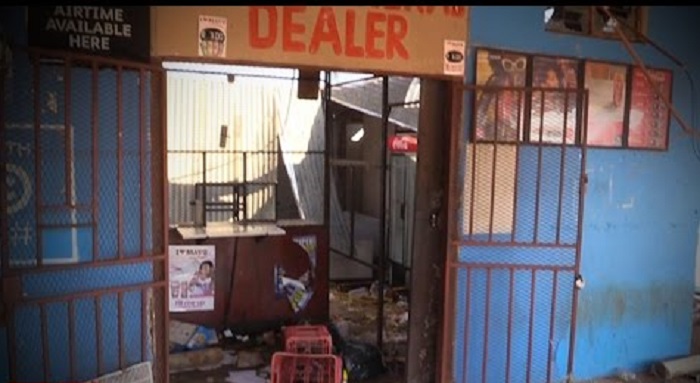As law enforcement officials manage the unrest in Tshwane, foreign nationals residing within the vicinity appear to once again lay victim to xenophobia, as many businesses owned by foreign nationals have reportedly been looted by disgruntles locals. The protests began this week, following the announcement of MP Thoko Didiza as the ANC’s mayoral candidate for the upcoming local elections.
The regional executive committee tabled three names, which did not include incumbent mayor Kgosientso Ramokgopa, but did include his ANC deputy in the region, Mapiti Matsena.
While the actual reason for the outbreak of violence is being investigated by intelligence agencies, chairperson of the Township Business Development of South African (TBDSA) and a member of the Somali Community Board of South Africa, Maulana Abbas Mkhize, explains that violent protests have become a trend in the country.
He says that irrespective of the size of riots, migrants residing in the location of riots are not spared from the consequences.
In response to the looting of migrants, Mkhize confirmed that TBDSA officials worked into the evening on Wednesday to relocate displaced migrant traders in Tshwane townships.
While the businesses of migrants were negatively impacted by the rioters, Mkhize says that the psychological impact is of concern, since migrants are the assured targets in service delivery protests.
“This has a negative impact on the psychology of migrants. In fact, it is a norm in their lives. If it’s not riots, it is day-to-day criminal activity when someone may breaks into a roof or breaks a wall to rob them.”
Mkhize further noted that the TBDSA, which was recently recognised by the Department of Small Business Development, assists migrants to change their image of themselves within South Africa and works to include them in the broader activities within communities.
This form of integration, he asserts will change their perception of themselves, from being outsiders to constructive members of communities.
“Where chain supermarkets are generally unaffected by riots, migrants are affected either way. This is because of the perception that locals have of migrants in townships, on the basis that they do not participate in anything in the township – as an island on their own.”
Mkhize says the perpetual disunity between migrant and local communities is largely due to the fact that no mechanism of integration has been developed.
The socio-economic challenges that South Africa faces has added to the discontentment of locals, who are not sharing in the economic gains of migrant workers since migrants are seen as not working to economically improve the communities in which they reside.
VOC






 WhatsApp us
WhatsApp us 

